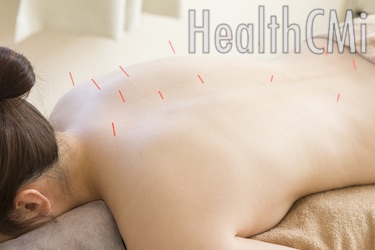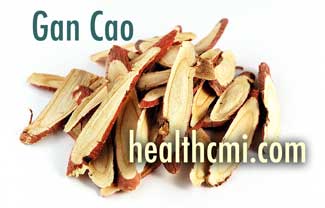Research finds acupuncture combined with herbal medicine effective for the treatment of rheumatoid arthritis. Acupuncture combined with the herbal formula Dang Gui Si Ni Tang resulted in a total effective rate of 93.75%. The research demonstrates that acupuncture combined with the herbal formula has a “significant curative effect on rheumatoid arthritis….” While these findings are hopeful, the 93.75% total effective rate represents all clinically significant improvements and does not represent a cure rate. 
Dang Gui Si Ni Tang, translated as Angelica Decoction for Frigid Extremities, is a Traditional Chinese Medicine herbal formula included in the Shang Han Lun (Treatise on Cold Damage Disorders), written in 220 CE. In the book, the herbal formulation is recommended for patients with a sensation of chilled hands and feet combined with a small and weak pulse, which is attributed to an external weakness of yang.
Dang Gui Si Ni Tang is categorized as an herbal formula that warms the channels and disperses cold. The formula warms the channels, expels the cold, nourishes the blood, and invigorates blood stasis. Dang Gui Si Ni Tang contains:
- Dang Gui (Radix Angelicae Sinensis)
- Gui Zhi (Ramulus Cinnamomi)
- Shao Yao (Radix Paeoniae)
- Xi Xin (Herba Asari)
- Zhi Gan Cao (Radix Glycyrrhizae Preparata)
- Mu Tong (Akebiae Caulis)
- Da Zao (Fructus Jujubae)
Another study investigated Dan Gui Si Ni Tang’s therapeutic effects for diabetics. Patients with diabetic foot ulcers due to blood stasis or kidney yang deficiency were randomized into an herbal group and a drug group. The randomized-controlled trial selected patients from the Maoming Hospital of Traditional Chinese Medicine at the Guangzhou University of Chinese Medicine. The treatment group received a modified version of Dang Gui Si Ni Tang and the control group received treatment with cilostazol, a quinolinone derivative used to relieve symptoms due to peripheral vascular disease.
Both the herbal formula group and the drug group demonstrated significant therapeutic effects. The researchers concluded that Dang Gui Si Ni Tang is effective for reducing symptoms due to diabetic foot ulcers. In addition, the herbal formula outperformed the drug group in the reduction of advanced glycation end products (AGEs). AGEs are substances that worsen diabetes and other degenerative diseases including atherosclerosis and Alzheimer’s disease. AGEs are involved in oxidative damage and show evidence of causing blood vessel pathologies in diabetics. At the end of the study, the level of AGEs in the Dang Gui Si Ni Tang group was lower than the level in the drug group. This indicates that the herbal formula is more effective in lowering concentrations of these harmful compounds than the drug. 
In related research, Chen et al. conclude that Dang Gui Si Ni Tang ameliorates myelosuppression. This is a condition often caused by chemotherapy toxicity wherein there is a decrease in production of immunity related cells including leukocytes, erythrocytes, and thrombocytes. The research indicates that the herbal formula may potentially relieve these harmful adverse effects of cancer treatment.
The researchers note, “Our results demonstrated that DSD (Dang Gui Si Ni Tang) could significantly elevate the level of bone marrow hematopoietic stem progenitor cells in myelosuppression mice model.” They add that Dang Gui Si Ni Tang “accelerated cell proliferation by switching cell cycles from G0/G1 phase to S and G2/M phase.” The researchers note that Dang Gui Si Ni Tang also “significantly elevated the mRNA expression level of TPO (thrombopoietin)….” The research team concludes that Dang Gui Si Ni Tang “is highly potent to ameliorate myelosuppression induced by chemotherapy by upregulating TPO expression.”
References:
Liu Xiaoli. “Efficacy Observation on Acupuncture Combined with Danggui Sini Decoction for Rheumatoid Arthritis.” Chinese Manipulation & Rehabilitation Medicine. 2015 (3), R246, 116300.
You, Wei-Hua, Ping Wang, Mao-Qing Li, Yu Zhang, Yu-Lan Peng, and Feng-Ling Zhang. "Therapeutic effects of modified Danggui Sini Decoction on plasma level of advanced glycation end products in patients with Wagner grade 0 diabetic foot: a randomized controlled trial." Zhong Xi Yi Jie He Xue Bao 7, no. 7 (2009): 622-628.
Chen, Qing-quan, Xuesong Han, Wan-ming Wang, Liangyu Zhao, and Aimin Chen. "Danggui Sini Decoction Ameliorates Myelosuppression in Animal Model by Upregulating Thrombopoietin Expression." Cell biochemistry and biophysics (2014): 1-6.


